"Liberating scientific thinking", taking risks, attracting talent and building international cooperation mechanisms are the golden keys to promoting this development.
Science and technology (S&T) has always been an important driving force for the socio-economic development of each country. In recent times, Vietnam has achieved many remarkable achievements, but has also missed many opportunities to break through in the international arena.
In the context of the digital age and artificial intelligence (AI), the question is where does Vietnam stand on the world science and technology map? What have we done, what is lacking, and what direction do we need to break through?
To better understand the current situation and development prospects of Vietnam's science and technology sector, Dan Tri reporter had an interview with Professor Nguyen Duc Khuong, Chairman of AVSE Global (Global Organization of Vietnamese Scientists and Experts), Executive Director of EMLV School of Business Administration, France.
The professor frankly shared about the achievements, limitations as well as solutions so that Vietnam does not miss opportunities in the global technology race.
How does the professor assess the current state of science and technology in Vietnam? What achievements have we made and what have we missed after many years of trying to innovate?
- I still remember a conversation four years ago, with many Vietnamese and international professors about the scientific level of countries, many professors "sadly" shared that 35-40 years ago, the basic science and technology level of Vietnam and China was quite similar, but up to now, China has gone too far, made great strides, turning scientific research and technology into a symbol of development, for example: spacecraft, semiconductors, AI, submarines, high-speed trains.
China, which was a low-profile scientific research institution in the 2000s with a large number of publications, has made remarkable progress in both quality and quantity. After 20 years, many of the leading experts in important fields such as earth sciences, finance, environment, technology and innovation are Chinese or of Chinese origin.
Obviously, they have realized that science and technology are the pillars of development and have invested systematically in this field, while transforming research results into products serving life and promoting the national economy.
The problem of science and technology development is very urgent for Vietnam, it needs a stronger development cycle to break through, take advantage of opportunities from Resolution 57, and turn science and technology into a comprehensive development platform in the digital age.
We missed the 80s, 90s, and 2000s for various reasons. If we miss the boat again, AI and new tools and technologies will make the gap much wider, very quickly.
What is the significance of the General Secretary's emphasis that Resolution 57 is a resolution to "liberate scientific thinking" in the current context? What new points does this reflect in the Party's guiding viewpoint, Professor?
- Liberating scientific thinking is the key premise for all development. All progress originates from perception and thinking methods.
First, it is necessary to identify science and technology as the foundation for national development, helping Vietnam stand shoulder to shoulder with the world. Looking at the development path of countries with advanced science and technology foundations, we can easily see that they all possess a favorable social environment, high level of education and strong national competitiveness.
Thinking about science and technology does not stop at recognizing its importance but must also be transformed into concrete actions, especially investment actions. Spending on science and technology is a strategic investment.
The dividends that science and technology bring are the remarkable development of society, the enhancement of the competitiveness of economic sectors and the progress in thinking of each person in the future.
The reality is that investment always comes with risks. Research may not yield immediate results, and may even fail many times. This does not mean that the investment is over, but requires time for assessment, evaluation, and continued investment to achieve breakthroughs.
Scientific thinking is also about continuous learning and improvement, including revising previous research that is no longer relevant, and continuing with new groundbreaking research.
In the story of innovation in thinking about developing science and technology, the human factor plays a key role. There are good leaders with the mindset of "all for the development of science and technology", and businesses with the mindset of "science and technology is a valuable competitive advantage".
And above all, good scientists who are capable of leading and building a science and technology ecosystem, building a strong research team and identifying key topics for the future. All for a "Big Dream" of development for Vietnam.
As the Professor just shared the story about brain thinking, it means that we need scientists who can master that field. According to the Professor, does Vietnam need a mechanism to attract talents, not only Vietnamese scientists but also foreign scientists?
- Vietnam needs to not only focus on the Vietnamese community at home and abroad but also aim to attract the world's leading scientists. This expansion is a fast and effective way to raise the level of national science and technology. Here, the size and attractiveness of universities, research institutes, and R&D centers are important.
In recent years, we have seen an increase in the number of high-quality scientific conferences in Vietnam, gathering many leading international experts. Some prestigious scientific awards such as VinFuture have created a buzz, making Vietnam a notable destination on the global scientific map.
The interest of international scientists in research topics and the dynamism of Vietnam's economy are growing. By improving the research environment and building a mechanism to support science and technology, we have a great opportunity to attract international talents to cooperate, work and contribute to common development.
Resolution 57 emphasizes many stories of mastering strategic technologies such as AI, big data, semiconductors. Can you share lessons learned from the experience of developing these fields in France?
- The 2008-2009 global economic and financial crisis and the European debt crisis pushed many economies into recession.
In that context, France under President Sarkozy has implemented the "Investment for the Future" program focusing on: Supporting the university system, research and innovation; promoting innovative small and medium enterprises; developing life sciences; investing in clean energy and resource management; building a digital society and digital transformation.
The program also helped create technology institutes and the Paris-Saclay technology cluster. The original goal was to have 25 tech unicorns by 2025, but by 2022, France had 28 unicorns (CB Insights), showing the effectiveness of focusing investment on education, research and industries with high social impact.
Another example is the development of artificial intelligence. In 2018, President Macron tasked Professor Cédric Villani - a mathematician who won the Fields Medal in 2010 along with Professor Ngo Bao Chau - to research and propose an AI strategy for France.
Mr. Villani's report emphasizes France's science and technology potential but also points out difficulties in applying it in practice, the risk of brain drain and the need to focus on key areas (health, transport, environment, defense) and ethical issues in developing and applying AI.
These two examples show that France has identified shortcomings and difficulties and proactively transformed its development model.
Currently, France has a high capacity for research and application of science and technology, especially in AI and big data. France has announced its 2030 strategy with 54 billion euros invested in high technology, prioritizing green transformation, supporting startups, R&D in businesses and tax incentives for R&D.
This is a lesson in determining the right timing, investment areas and support policies for research, development and training of high-quality human resources.
Vietnam and France have signed a comprehensive strategic relationship. Can you assess the opportunities for cooperation in scientific development between Vietnam and France, especially in the context of Vietnam promoting the development of science and technology?
- Vietnam and France have particularly close scientific and technological cooperation relations in the fields of healthcare, higher education and engineering training, creating conditions for Vietnamese students to study in France, and for scientists and experts from both countries to work together.
In the future, bilateral cooperation can be expanded to cyber security, digitalization, climate change response, and energy. These are areas in which Vietnam is increasing its investment.
The elevation of the strategic partnership creates conditions for the two countries to develop deeper cooperation based on France's solid science and technology foundation.
To be able to "stand on the shoulders of giants" as the General Secretary said, what are the immediate solutions and effectiveness that can be implemented and what is the long-term solution story? Can the professor share from his perspective?
- Without building and improving internal capacity, Vietnam will find it difficult to take advantage of achievements from developed countries.
Instead of thinking about technology transfer, which is difficult and costly because technological secrets are the competitiveness of each country, we should focus on building bilateral or multilateral research and development cooperation mechanisms.
This creates conditions for Vietnamese experts to participate, grasp and transform technology. After the accumulation process, Vietnam can develop its own technology suitable to domestic needs.
The current changes and technological competition in the world require reshaping the direction of science and technology cooperation with each country, updating their priorities and building appropriate separate cooperation mechanisms. For example, in ASEAN, we can build a science and technology group to serve the common development goals of the bloc. To participate in the global cooperation and value chain, it is necessary to build cooperation mechanisms at the national and local levels.
It is necessary to promote the intellectual resources of overseas Vietnamese, who can play an important role in international cooperation. They can create connections and build trust with leading partners. Science and technology are factors that ensure competitiveness, so effective cooperation requires trust and strategic relationships.
How should Vietnamese enterprises act to promote the development of science and technology in the country, Professor?
- To develop science and technology, financial resources, high-quality human resources, effective cooperation mechanisms and international integration capacity are key factors. Small and medium-sized enterprises often face many challenges when accessing this environment.
Therefore, the role of "leader" enterprises, both public and private, becomes especially important. They need to pioneer in creating big problems, then link up with small and medium-sized enterprises with research capacity and technology absorption capacity to jointly solve national-level problems, forming a strong enough science and technology ecosystem.
The next priority is to build close cooperation between these enterprises and universities and research institutes, focusing on key national areas, to promote the application of science and technology and transform scientific knowledge into practical value. This process can be divided into two stages: first is the creation of new knowledge, and then the synthesis of new knowledge, creating value from that knowledge.
Which technologies should Vietnam focus on developing? Which industries are Vietnam's spearheads, which industries are weak, and which industries need to be exploited with science and technology, Professor?
- Last February, AVSE Global organized the Vietnam Global Innovation Forum at Google APAC office, Singapore.
The program brings together Vietnam’s Top 100 innovators from around the world. More than 20 countries participated in discussions on technologies and innovative ideas that can help Vietnam thrive in the future.
Three major topics, considered key to helping Vietnam overcome challenges and make breakthroughs to narrow the gap with developed countries, include:
Financial technology (Fintech): Plays an important role in attracting financial resources, promoting growth and research, as well as creating opportunities for startups. The lack of financial resources will hinder development, especially when Vietnam is aiming to build international financial centers.
Modern financial technology will help people around the world easily access loans, invest and turn their projects into reality.
Artificial Intelligence (AI): Can be widely applied in fields such as healthcare, education, manufacturing and business. The main goal is to help Vietnam improve labor productivity, efficiency in manufacturing and business, as well as develop new services by optimizing resources through AI technology.
Semiconductor technology: Vietnam has begun researching and developing the semiconductor industry since the 1980s. However, this is an industry that requires a very high level of science and technology and the ability to control sophisticated technology.
In the coming decades, the semiconductor industry will remain an important factor in the development of the economy, especially in the fields of electronics, telecommunications, science and space. If Vietnam can participate in the global value chain in the semiconductor industry, it will reduce its dependence on other countries.
We also discussed many new technologies, which at least Vietnam is prepared for, so that we can catch up with the game right away, such as quantum or new energies.
For these three themes to thrive, their foundation is the development of innovative technology businesses, especially startups in fields such as semiconductors, financial technology, information technology and artificial intelligence. The new space from Resolution 57 can help these technology directions go further.
Thank you Professor for taking the time to chat!
Content: Nam Doan, Bao Trung, The Anh
Design: Thuy Tien
05/03/2025 - 09:25
Source: https://dantri.com.vn/cong-nghe/khoa-hoc-cong-nghe-viet-nam-tu-thach-thuc-qua-khu-den-co-hoi-lich-su-20250502104018979.htm




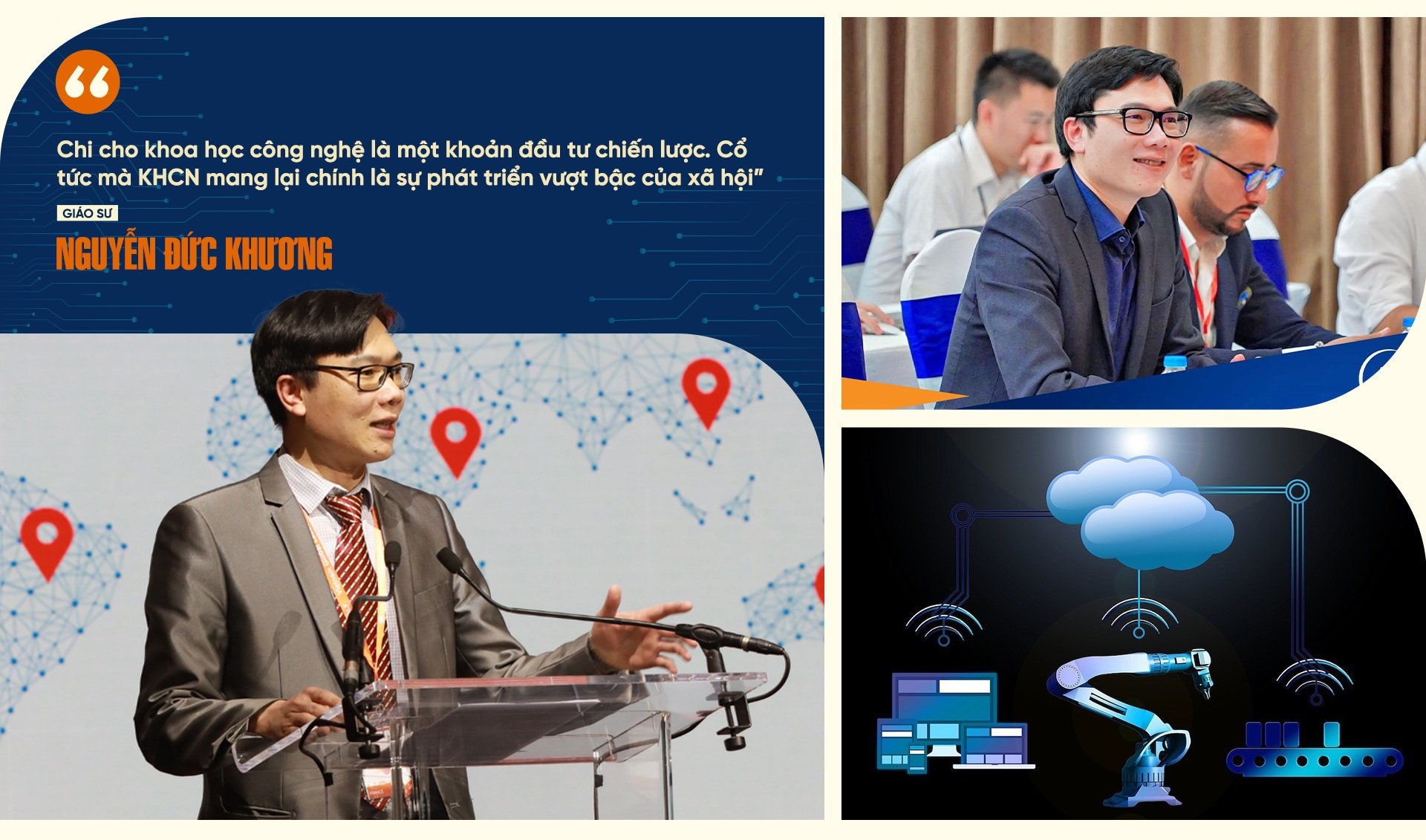

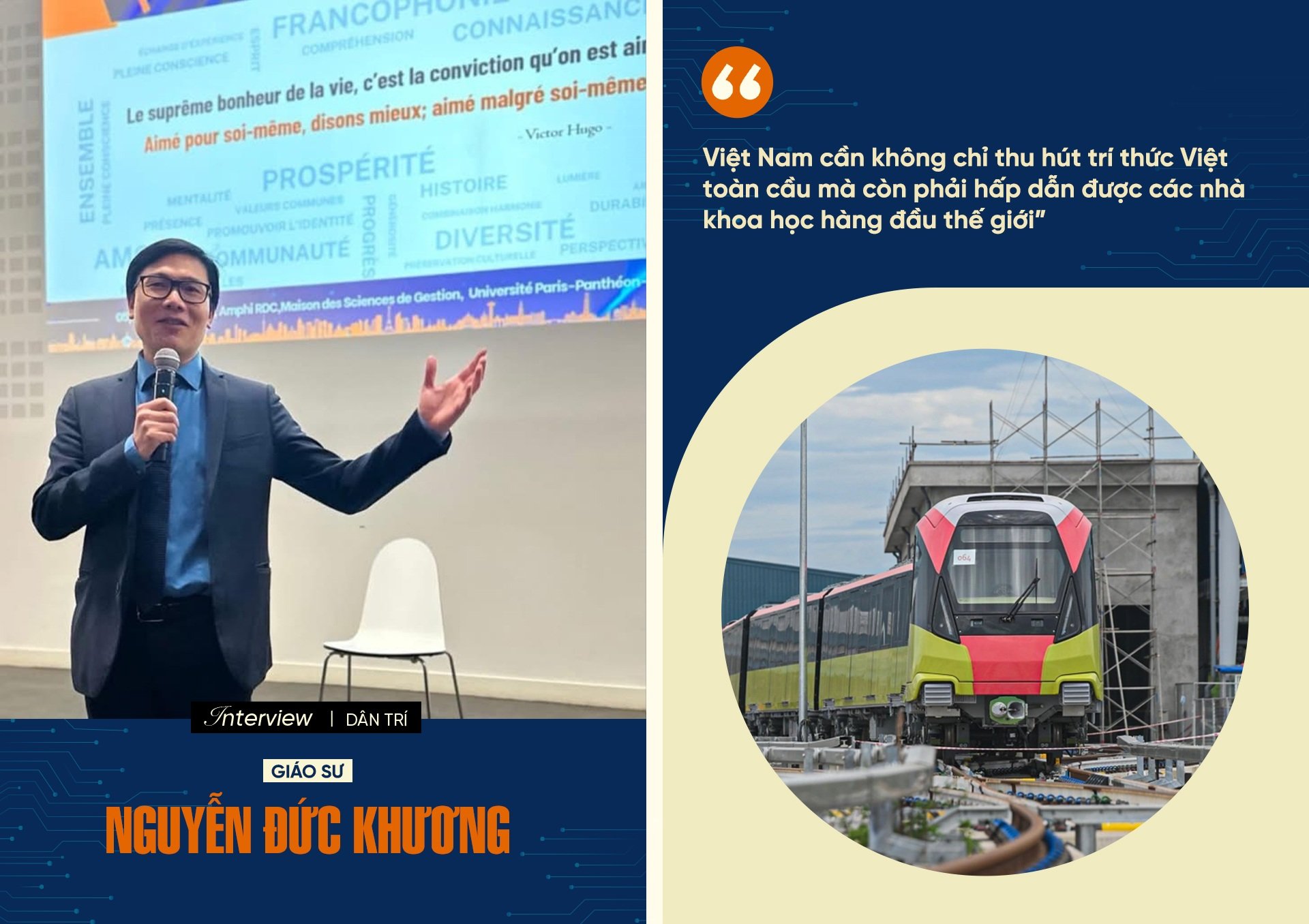

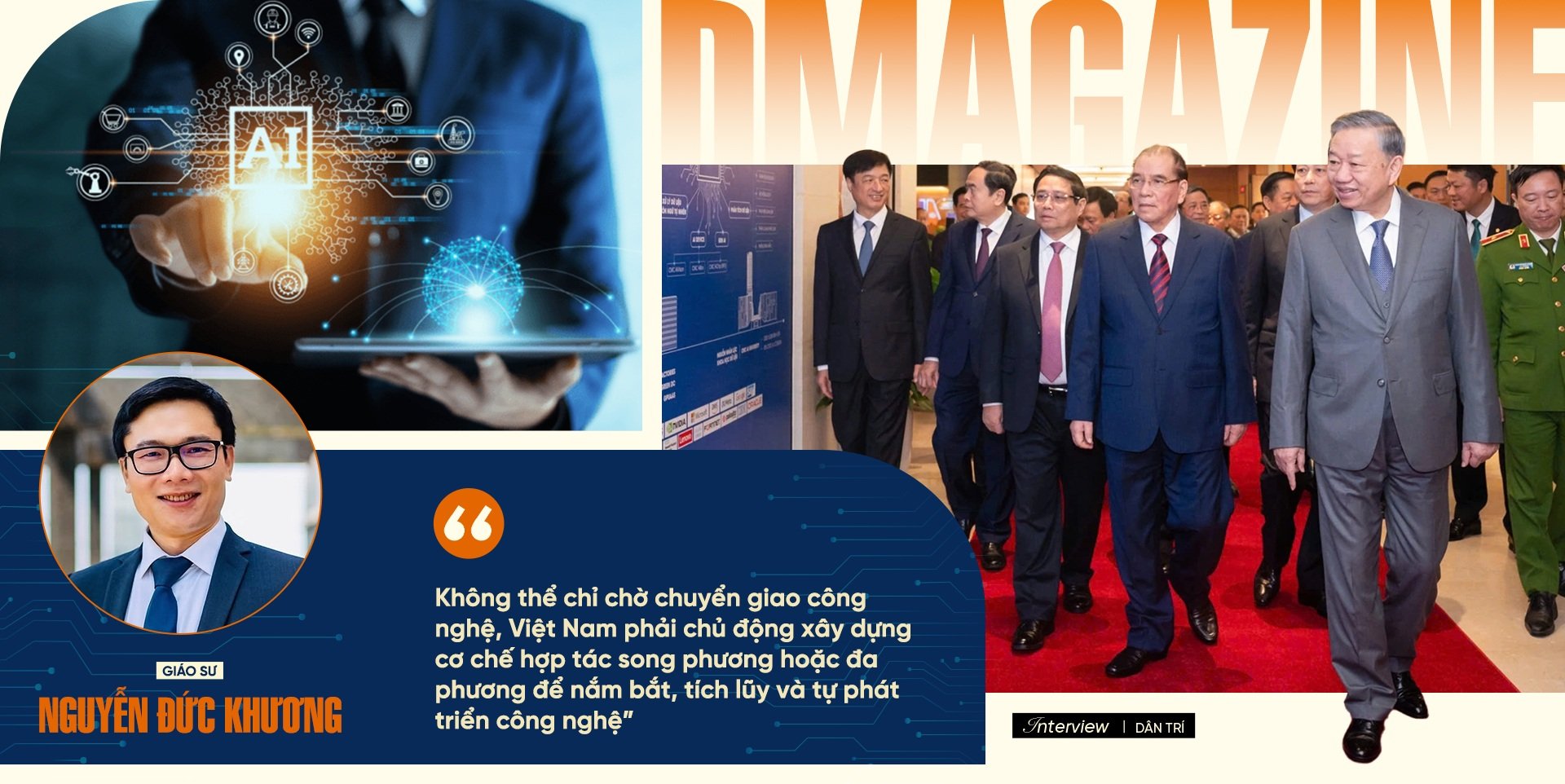

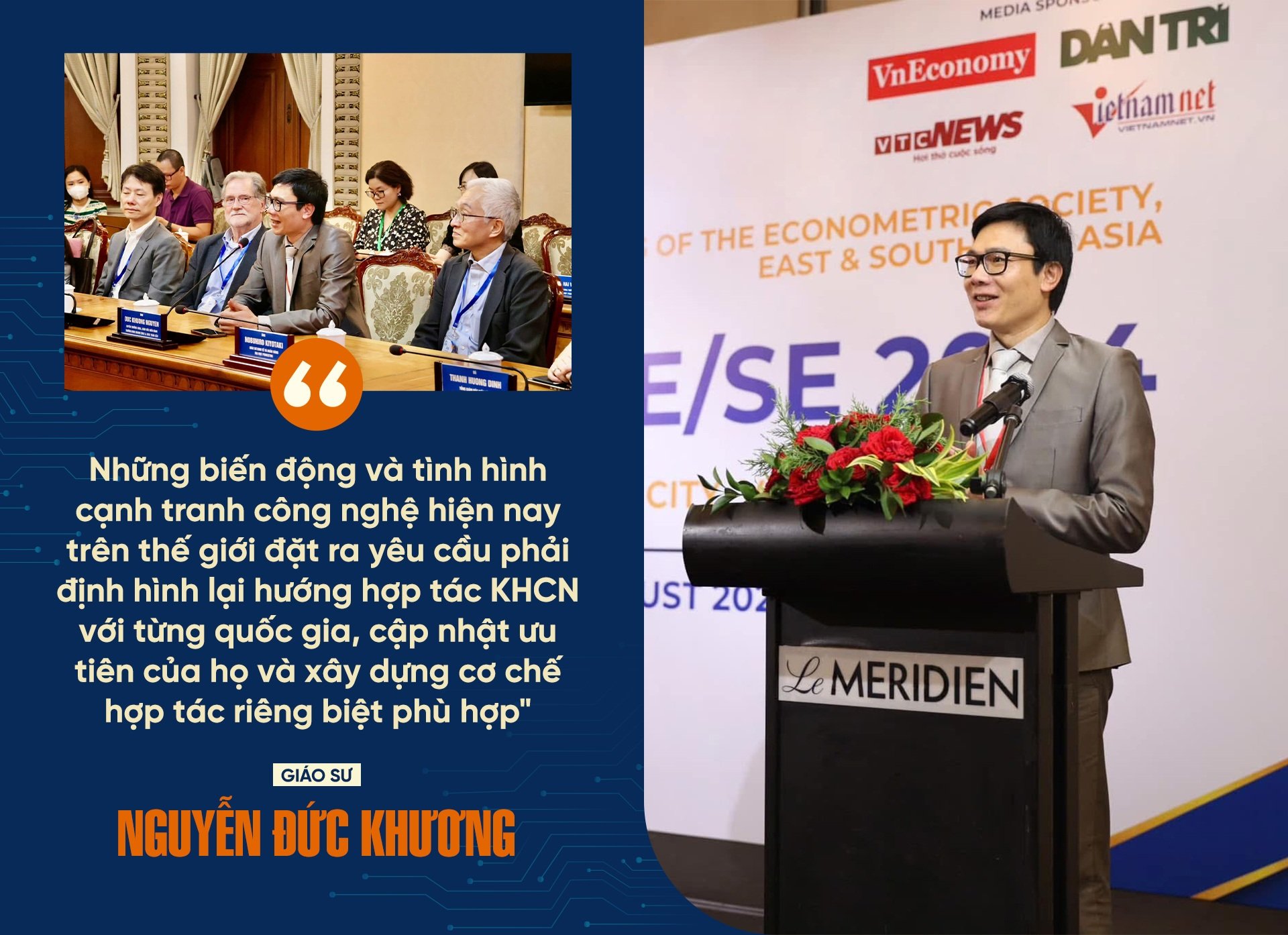
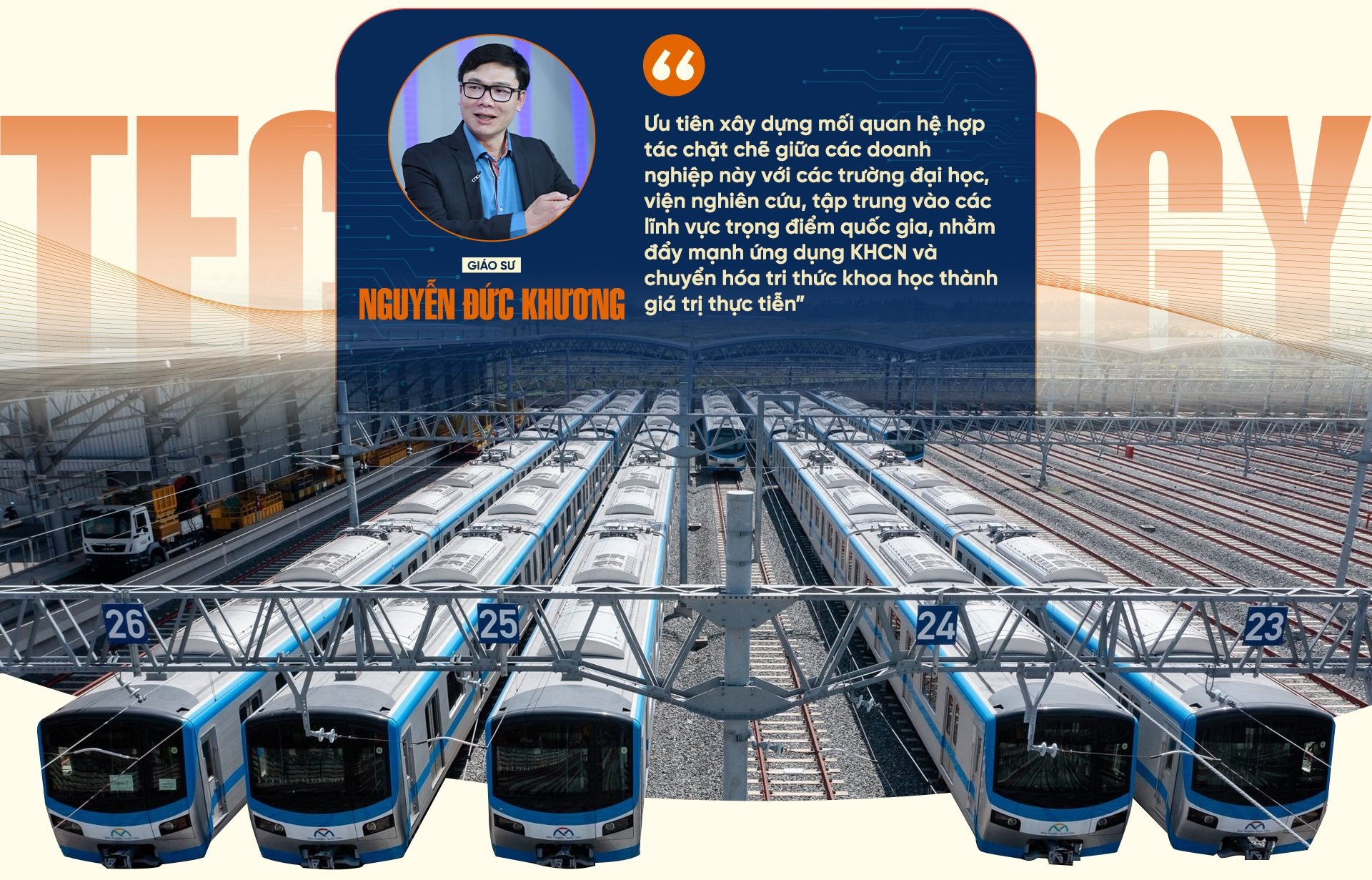

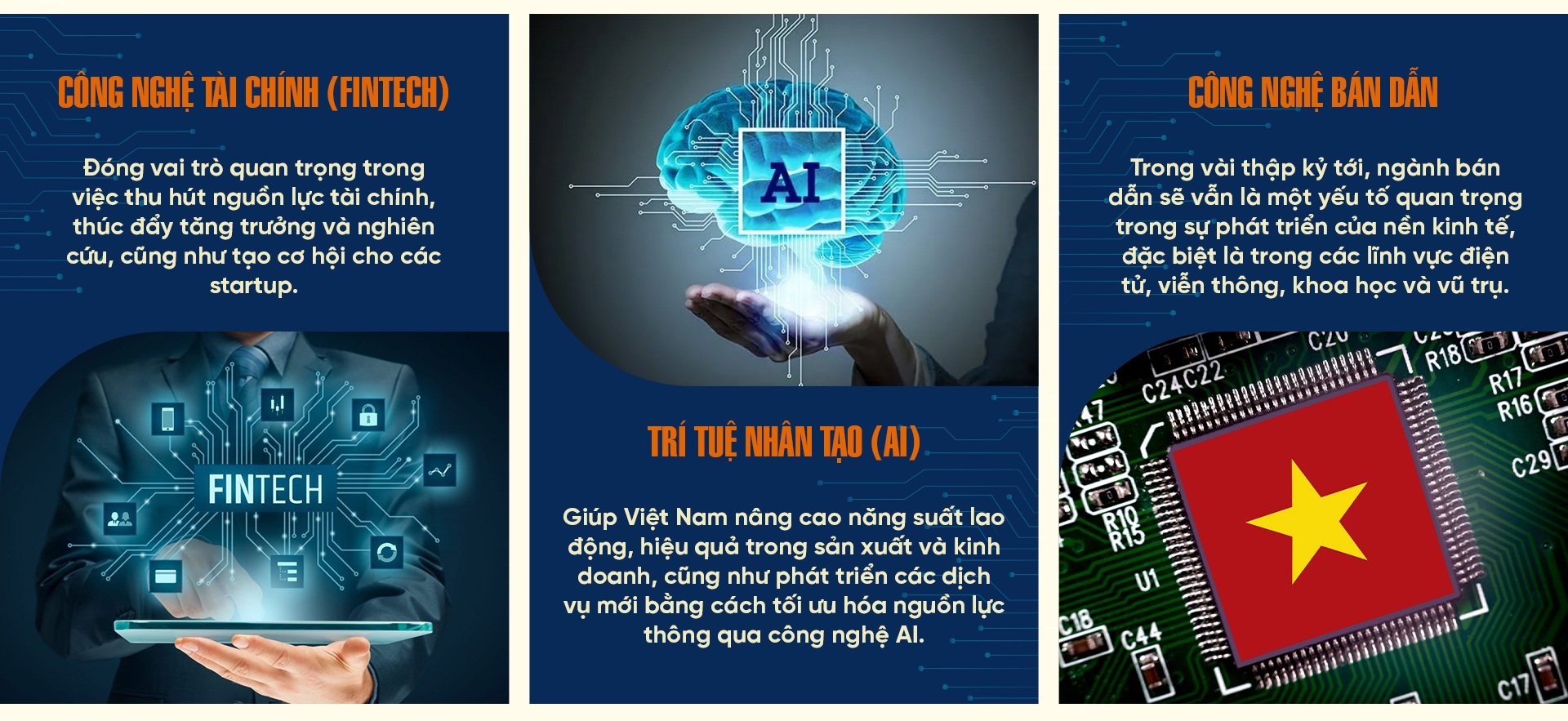


![[Photo] President Luong Cuong presided over the welcoming ceremony and held talks with Sri Lankan President Anura Kumara Dissanayaka](https://vphoto.vietnam.vn/thumb/1200x675/vietnam/resource/IMAGE/2025/5/5/bbb34e48c0194f2e81f59748df3f21c7)
![[Photo] Solemn opening of the 9th Session, 15th National Assembly](https://vphoto.vietnam.vn/thumb/1200x675/vietnam/resource/IMAGE/2025/5/5/ad3b9de4debc46efb4a0e04db0295ad8)


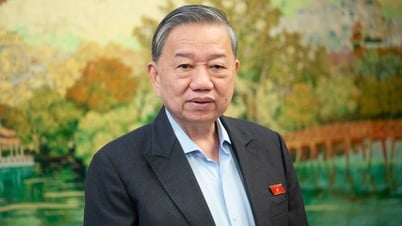





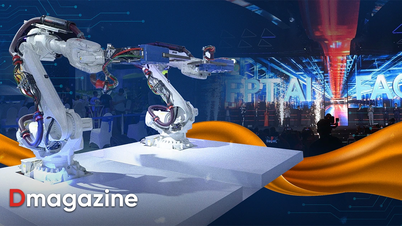












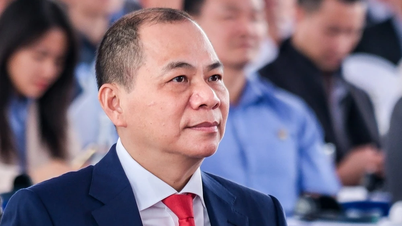





![[Photo] National Assembly delegates visit President Ho Chi Minh's Mausoleum](https://vphoto.vietnam.vn/thumb/1200x675/vietnam/resource/IMAGE/2025/5/5/9c1b8b0a0c264b84a43b60d30df48f75)




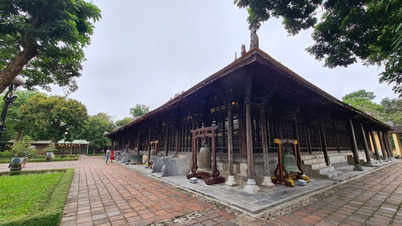




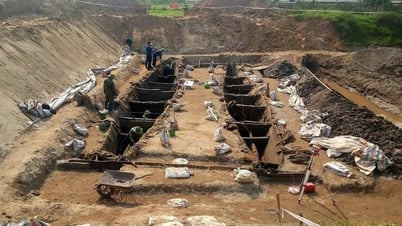






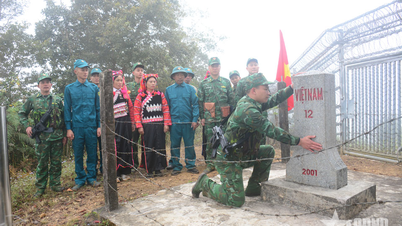











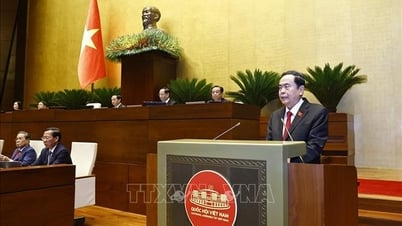
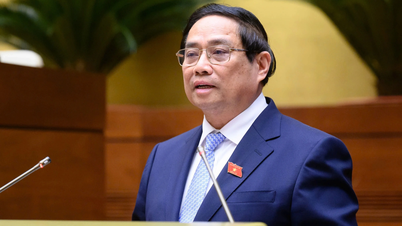
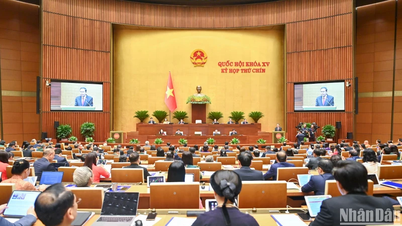


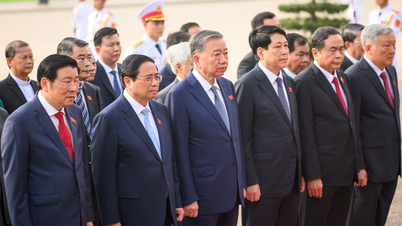






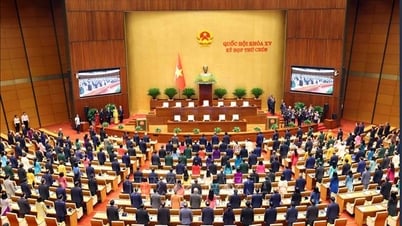










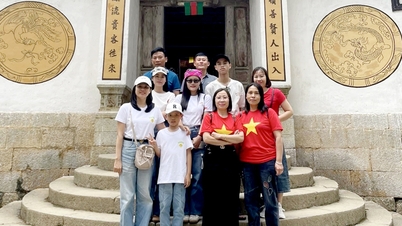













Comment (0)